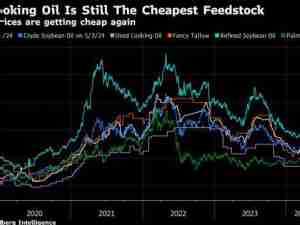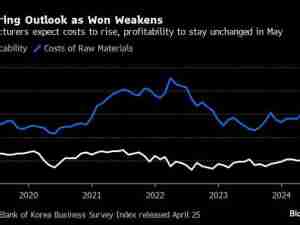Speaking at the Reuters Consumer and Retail Summit, President and Executive Director Bruce Rockowitz said China was still a dominant and unique player in the whole supply chain despite everything that was happening in the country, including growing costs.
"We believe that over the next few years there is not going to be a radical change in where people source from," he said, adding that other countries did not have and would never have the same scale as China.
Li & Fung, which this year expects to export $8 billion worth of goods from China and $1 billion of goods from Vietnam, said China would continue to be its biggest sourcing country, while Vietnam would be the second-largest.
"China is still a very dominant and unique player in the whole supply chain," Rockowitz said.
He said structural problems restricted India from becoming as dominant as China, while Bangladesh, Indonesia, and Vietnam would grow dramatically.
Li & Fung would switch to sourcing from China's cheaper interior as infrastructure had improved with high-speed railways linking remote areas and major Chinese cities, he said.
"Over the next few years, I think still 50 percent of our production will be based in China. I don't think it will change dramatically at all, it may go up or down 1 or 2 percentage points, but I think China is still the dominate supplier of the world," he said.
On the potential of China's consumer market, Rockowitz said: "It has not developed national retailing yet" as the top 100 retailers accounted for only 10 percent of total domestic retail.
Low-Cost Era Over
The last 20 years had been a deflationary environment for costs of goods and was unique because China added so much production very quickly to the world, depressing global prices of consumer goods, Rockowitz said.
"Now what we and the industry are facing is that the party is over," he said. "Basically China has a lot of the same issues that all developing countries have when they become developed."
"What you are moving into is an era for higher prices," he said, adding that the Foxconn effect was the "natural evolution" of a country developing and part of "a greater movement of prices going up", including commodities prices and labour costs.
"The ultimate answer to all of this is consumer goods prices are going to get higher. On the other hand, retailers will have a hard time passing that on to consumers," he said.
US. Business Trending Up
The exporter, which supplies retailers such as Wal-Mart Inc and Target , said it expected its U.S. business to trend up and did not see a double-dip in the U.S. economy as it had already emerged from recession.
Li & Fung gave a positive view for growth in 2010, helped by a strong recovery in the United States, which accounts for about 65 percent of its business and was expected to remain steady to slightly higher in the years ahead.
"If you look at the optimism and confidence of our customer base, its a complete change in a positive direction from last year, and in the last three to four months ... its been incrementally better every month," he said.
Commenting on areas that would see strong growth opportunities, Rockowitz said: "All areas have pretty big opportunities, including sourcing".
"For our sourcing business, growth is pretty established now for the next three to five years. Other businesses, like our beauty business, will be in a high growth position and are likely to grow much faster."
With $1 billion war chest for mergers and acquisitions, Li & Fung is aiming to expand its onshore businesses in the U.S. and Europe.
Li & Fung would look at acquiring footwear-, and health and beauty-related assets in Europe and in the U.S. and may consider acquiring food-related assets in futu










